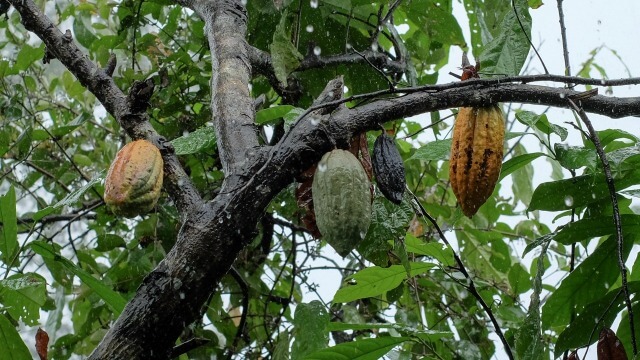As part of our initiative, supported by The Ford Foundation to build a business case for conservation, Kopernik is excited to be working with Lingkar Temu Kabupaten Lestari, the Government of Sintang district, and Credit Union Keling Kumang. Through this initiative, we are working with smallholder farmers to adopt sustainable agri-business practices so they have incentives to protect their land instead of selling it, abandoning it or converting it to palm oil plantations. The partnership is exploring potential commodities, market linkages as well as technology solutions that are environmentally sustainable alternatives for farmers, which can support the economic development of farming communities.
The agriculture sector in Sintang district, West Kalimantan is currently dominated by rubber and palm oil, which cover 93,113 hectares and 151,587 hectares respectively of land in the area (2015 data). Palm oil alone accounted for 84 percent of total plantation production in Sintang district at 214,761 tonnes, according to data from the Central Statistics Agency. This means that smallholder farmers in Sintang are heavily dependent on the rubber and palm oil industries.
To find potential solutions, we are conducting research and experiments of two potential commodities that can help diversify farmer incomes - cacao and Sengkubak leaves.

Kopernik is assessing the potential of cacao and sengkubak as promising commodities in Sintang, West Kalimantan. (Photo credit: Fauzan Adinugraha/Kopernik)
Cacao has the potential to reduce Sintang farmers’ dependency on rubber and palm oil and to increase farmers’ income. The commodity is a recently introduced crop with approximately 300 farmers currently involved in its cultivation with a plantation area of 125 hectares. Meanwhile, Sengkubak is a local plant of Kabupaten Sintang which is commonly used as flavor enhancer in cooking. However, the plant is not yet cultivated at a larger scale.
Following the research phase, Kopernik will conduct experiments - which include the testing of a solar dryer as a potential solution to improve the quality of cacao during the post-harvest process, and thereby lead to a higher selling price. Findings from the research and experiments will be shared to relevant stakeholders including farmers’ groups and government officials, with a view to replicating them at a larger scale.
Stay tuned to hear more about our work with smallholder farmers in Sintang, West Kalimantan.


